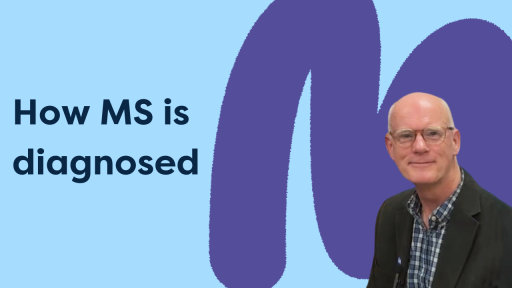The first UK trial of CAR-T therapy in MS has successfully treated their first patient.
Emily Henders received an infusion of her own T-cells, after they had been specially modified to target and destroy cells thought to be responsible for the MS immune attack. Emily remains well and said this about taking part in the trial:
The trial name is AUTO1-MS1 and it is led by Consultant Neurologist Dr Wallace Brownlee at University College London Hospital. The study aims to explore whether a particular type of CAR-T therapy is safe and whether it can treat MS. It is a Phase 1 trial.
AUTO1-MS1 is recruiting 18 people with relapsing or progressive forms of MS who are not responding well to the best medications already available and whose disability is worsening. They need to be aged between 18 and 60 years, and able to consent to take part in a long term study. If you are interested in taking part, speak to your neurologist to see whether you might be eligible for a referral to AUTO1-MS1.
CAR-T therapy involves modifying your own T-cells to target and destroy specific cells in your body. T-cells are a type of white blood cell. They roam your body destroying bacteria and other things that can cause disease.
T-cells react to proteins on the surface of other cells. In CAR-T for MS, the T-cells are made reactive to a protein called CD19 that appears on the surface of another type of white blood cell known as B-cells. This is the same protein signal that some MS disease modifying drugs are designed to target.
Other MS drugs and therapies may not pass through the blood-brain barrier (BBB) and so their effect on the underlying cause of MS may be limited. CAR-T cells can get into your central nervous system (CNS) where the immune attack on your brain and spinal cord is happening.
CAR-T therapy is already used for treating some types of blood cancer and is now being trialled in autoimmune diseases like lupus and MS. It could potentially treat people with MS very effectively and with lasting effects.
In the AUTO1-MS1 trial, blood is collected from the person being treated using a machine that separates out white blood cells and returns the rest of the blood to the participant. This takes a few hours.
The T-cells that have been harvested are then modified in a laboratory. This process can take two to three weeks. A new gene is inserted into the T-cells that provides instructions to make a new protein called a chimeric antigen receptor (CAR).
The modified T-cells are infused back into the person being treated. The T-cells should multiply as normal, making the new CAR protein that recognises and targets the B-cells.
All being well, the person being treated can go home after around 10 days in hospital. They will be followed closely for 24 months from the infusion. After the end of the initial study, the participants may take part in a long-term follow up study for up to 15 years.
Previous CAR-T trials found some severe side effects were possible, including an inflammatory reaction called cytokine release syndrome (CRS). These side effects normally appear within the first 10 days after the treatment, and participants need to remain close to hospital for some weeks afterwards.
CAR-T therapy has not yet been compared with other MS treatments such as disease modifying drugs to see whether it is more or less effective at managing relapses or progression. This will take place later, if the Phase I and Phase II trials produce positive results.
It could be several years before CAR-T therapy becomes available on the NHS, if all stages of clinical show it is effective and safe.
Research and MS: Read about hot topics and key questions in MS research
How to find a clinical trial: Find out what clinical trials are recruiting and how you can get involved
What is it like to take part in an MS clinical trial?: Our podcast featuring Dr Nick Cuniffe and Faisal, a person with MS


